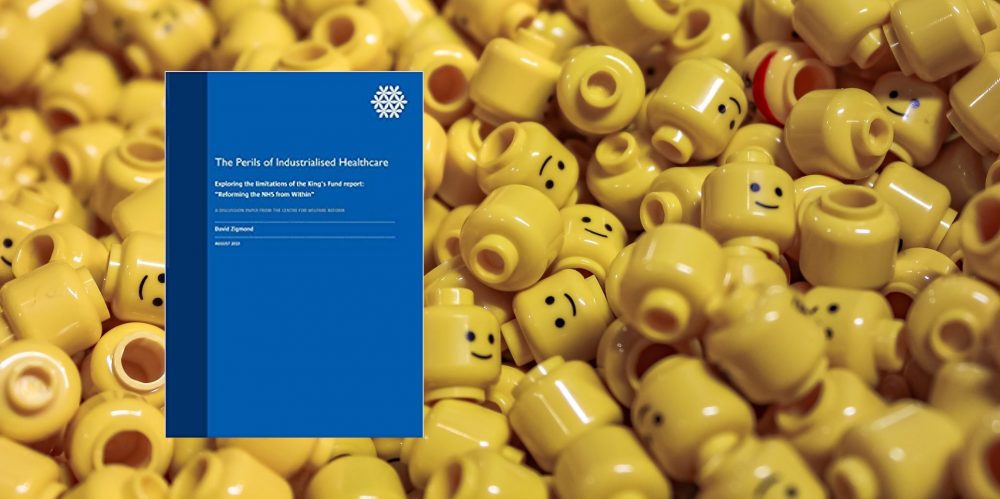Ira Madan is a Consultant Occupational Physician and Reader, Guy’s and St Thomas’ NHS Trust and King’s College London.
Tracy Briggs is an Expert-by-experience.
Carolyn Chew-Graham is a GP Principal, NHS Manchester and Professor of General Practice Research, School of Medicine, Faculty of Medicine and Health Sciences, Keele University.
Post-COVID-19 syndrome, often called ‘long-COVID’ refers to signs and/or symptoms that develop following COVID-19 infection, which continue for more than 12 weeks and are not explained by an alternative diagnosis.1 Long-COVID presents with clusters of symptoms, often overlapping, can affect any system in the body and fluctuate in time and severity. Symptoms of long-COVID which commonly impact on function and may impede return to work (including travel to and from work) include, fatigue, shortness of breath, chest pain and neurocognitive impairment.1
This article presents the guiding principles of supporting people with long-COVID to return to work based on a review of the current literature and guidance from the Faculty of Occupational Medicine of the Royal College of Physicians. Return to work can be an effective part of rehabilitation from illness and is generally good for health, providing a sense of purpose, boosting self-esteem and enabling financial independence.
The risk of falling out of work increases steeply with the length of time someone has been on sick leave, with the probability of a person not being able to return to work reaching approximately 50% after six months of sick leave. It is therefore important to note that a person can begin the return to work process before they are 100% fit. Many people can work effectively despite significant illness or disability, particularly if they are provided with suitable support in the workplace.
Return to work can be an effective part of rehabilitation from illness.
What should you cover in your consultations?
As part of assessing your patient’s fitness to return to work, you need to first elucidate the patient’s current symptomology and manage and investigate as per the NICE guidance on the management of the long-term effects of COVID-19.2 This includes examining people who have symptoms that may indicate organ damage, such as cardio-pulmonary symptoms, which may impede a return to work. Your examination should include the one-minute sit-to-stand test and the three minute active stand test.3 Arrange for your patient to have further investigations if required and consider whether they require onward referral to a long-COVID clinic. You may wish to signpost them to the Your Covid Recovery website.4
Fatigue, a common symptom which prevents people from returning to work and sleep disturbance is common in long-COVID, therefore take a good sleep history, including the frequency and duration of daytime naps and give sleep hygiene advice if necessary. Patients with long-term conditions often experience symptoms of depression and anxiety; poor concentration, loss of self-confidence and fatigue may compound the functional impairment caused by long-COVID making return to work harder still. Consider whether your patient would benefit from a referral to an Improving Access to Psychological Therapies service.
How should you take an occupational history for a person with long-COVID?
Take an occupational history which includes what the person’s job is, what it involves on a day-to-day basis, the pattern of working hours and shift work, how physical the job is and if it is safety critical, for example working with machinery, driving or front line emergency services. It is also important to establish the functional impairment that results from the patient’s symptoms and assess how they might impact on their work. For example, if they are suffering from shortness of breath, does their job involve physical exertion? If they are suffering from fatigue, does their role involve working long shifts?
Establish what the obstacles are to your patient returning to work and help them explore which ones could be overcome.
Ask the patient what they believe are the main factors impeding their return to work and if they can identify solutions to their return to work obstacles. Ask if the person’s manager has been in touch with them and ask the person if they think that their work could be adjusted, even for a temporary period to facilitate a gradual or phased return to work. Enquire how the person normally travels to and from work and whether this is possible with their current symptoms and if not if alternative arrangements can be made, for example home working, or taxis.
What should you do?
Establish what the obstacles are to your patient returning to work and help them explore which ones could be overcome. If they have not already done so, encourage them to contact their line manager and determine which adjustments they might need in order for them to return to work. This may initially include reduced hours, flexi-time or special equipment. Symptoms may fluctuate over time and some people may be able to return to work for a period, but then have further relapses in the future necessitating a reduction in hours or further period of leave.
If they need assistance with paying for any adjustments, they or their employer may be eligible for financial assistance from Access to Work.6 Ask if they have access to occupational health advice via their work and if they do encourage them to make contact with the service. If you and your patient agree that they may be fit to return to work with adjustments that a ‘maybe fit for work’ note (Med 3) should be completed, giving as many details as possible in the ‘adjustments’ and ‘functional effects’ section. Be sure to tailor and adapt the person’s return to work with their symptoms and give the patient reassurance that a mild increase in symptoms on return to work is unlikely to mean harm in most people.
Resources for patients:
RCPsych sleep hygiene leaflet. RCPsych; 202008/12/20 [Available from: https://www.rcpsych.ac.uk/mental-health/problems-disorders/sleeping-well
Access to work. Gov.uk; 202008/12/20 [Available from: https://www.gov.uk/access-to-work
Your COVID recovery. NHS; 202122/02/2021 [Available from: https://www.yourcovidrecovery.nhs.uk/
Resources for healthcare professionals:
COVID-19 rapid guideline: managing the long-term effects of COVID-19 NICE guideline [NG188]2
NICE QS158 Rehabilitation after critical illness in adults.7
Your COVID recovery. NHS; 202122/02/2021. Available from: https://www.yourcovidrecovery.nhs.uk/
National Guidance for post-COVID syndrome assessment clinics : NHS; 202008/12/20 Available from: https://www.england.nhs.uk/coronavirus/wp-content/uploads/sites/52/2020/10/C0840_PostCOVID_assessment_clinic_guidance_5_Nov_2020.pdf
References
- Carfì A, Bernabei R, Landi F, Group ftGAC-P-ACS. Persistent Symptoms in Patients After Acute COVID-19. JAMA. 2020;324(6):603-5.
- NICE. COVID-19 rapid guideline: managing the long-term effects of COVID-19. NICE guideline [NG188]. UK: NICE; 2020.
- Greenhalgh T, Javid B, Knight M, al. e. What is the efficacy and safety of rapid exercise tests for exertional desaturation in covid-19? Oxford COVID-19 Evidence Service, 2020; 2020.
- NHS. Supporting your recovery after COVID-19: NHS.; 202122/02/2021 Available from: https://www.yourcovidrecovery.nhs.uk/
- Sleeping well: RCPsych; 202008/12/20. Available from: https://www.rcpsych.ac.uk/mental-health/problems-disorders/sleeping-well
- Access to Work: Gov.uk; 202008/12/20. Available from: https://www.gov.uk/access-to-work
- Rehabilitation after critical illness in adults. NICE; 2017.
- National Guidance for post-COVID syndrome assessment clinics: NHS; 202008/12/20. Available from: https://www.england.nhs.uk/coronavirus/wp-content/uploads/sites/52/2020/10/C0840_PostCOVID_assessment_clinic_guidance_5_Nov_2020.pdf
Featured photo by Marten Bjork on Unsplash








